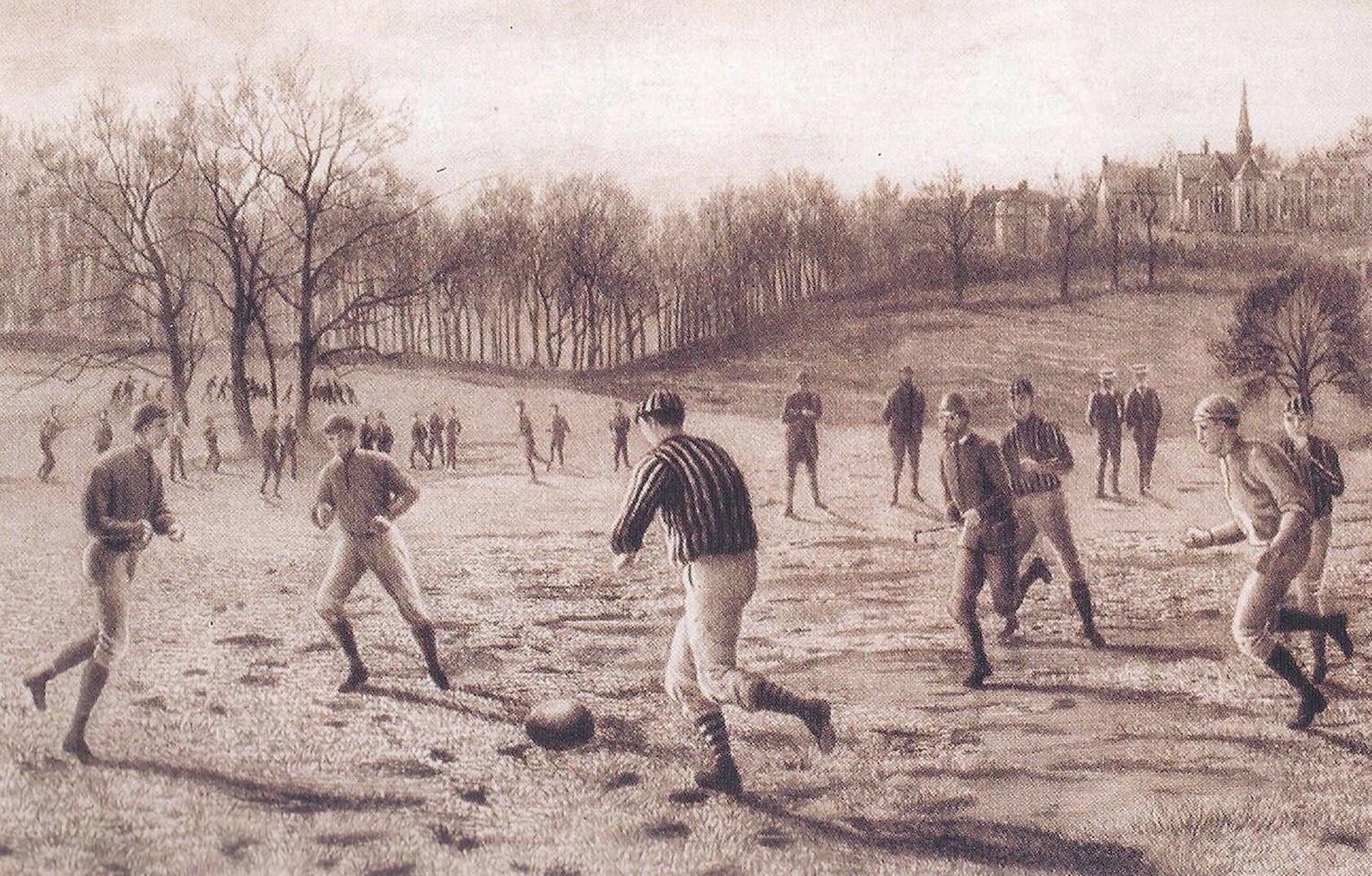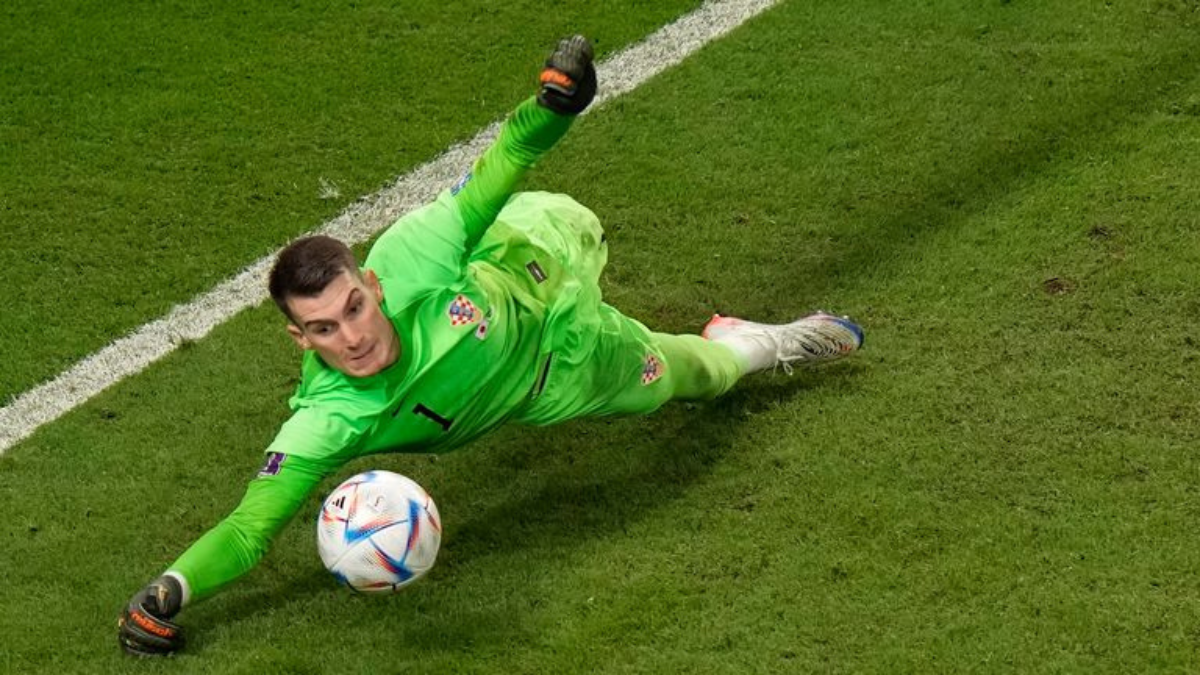“The History of Football in Croatia: A Century of Passion, Perseverance, and Pride
Related Articles The History of Football in Croatia: A Century of Passion, Perseverance, and Pride
The History of Football in Croatia: A Century of Passion, Perseverance, and Pride

Football, known globally as the "beautiful game," holds a special place in the hearts of Croatians. More than just a sport, it is a symbol of national identity, unity, and pride. The history of football in Croatia is a tapestry woven with threads of passion, perseverance, and triumph, reflecting the country’s tumultuous past and its unwavering spirit.
The Early Years: Seeds of a Footballing Nation (Late 19th Century – Early 20th Century)
The seeds of football in Croatia were sown in the late 19th century, coinciding with the rise of the sport across Europe. The region, then part of the Austro-Hungarian Empire, witnessed the introduction of football through students returning from their studies abroad, primarily from Vienna, Budapest, and Prague.
- First Clubs and Matches: The earliest traces of organized football activity in Croatia can be found in Zagreb. Academic circles and sports enthusiasts were instrumental in establishing the first football clubs. In 1903, the first football club in Croatia, HAŠK (Hrvatski Akademski Športski Klub), was founded in Zagreb, marking a pivotal moment in the nation’s footballing history. Soon after, in the same year, PNIŠK (Prvi Nogometni i Športski Klub) was established. These pioneering clubs played friendly matches against each other and teams from neighboring countries, laying the foundation for a more structured football scene.
- Regional Development: As football gained traction in Zagreb, it gradually spread to other parts of Croatia. Cities like Split, Rijeka, and Osijek saw the emergence of their own football clubs, fostering regional rivalries and contributing to the overall growth of the sport. These clubs often served as hubs for social gatherings and cultural exchange, further embedding football into the fabric of Croatian society.
- Joining the International Football Community: In 1912, the Croatian Football Federation (HNS) was established, marking a significant step towards formalizing football administration in the region. Although Croatia was not yet an independent nation, the formation of the federation demonstrated the growing desire to participate in the international football community. HNS joined FIFA as a member, although Croatia was represented by the Kingdom of Yugoslavia until its independence.
Football in the Kingdom of Yugoslavia (1918-1941): A Period of Integration and Conflict
Following World War I, Croatia became part of the Kingdom of Serbs, Croats, and Slovenes, later renamed the Kingdom of Yugoslavia. This period was marked by both integration and conflict, as Croatian football clubs and players were incorporated into the Yugoslav football system.
- Yugoslav First League: Croatian clubs participated in the Yugoslav First League, the top-tier football competition in the country. Clubs like HAŠK, Građanski Zagreb, Hajduk Split, and Concordia Zagreb consistently featured among the league’s top teams, showcasing the talent and competitiveness of Croatian football.
- Dominance of Croatian Clubs: Throughout the interwar period, Croatian clubs often dominated the Yugoslav First League. Građanski Zagreb, in particular, emerged as a powerhouse, winning multiple league titles and establishing itself as one of the most successful clubs in the country. Hajduk Split also enjoyed periods of success, contributing to the rich history of Croatian football.
- National Team Representation: Croatian players played a prominent role in the Yugoslav national team. Talented individuals like Franjo Glaser, Ico Hitrec, and Aleksandar Živković represented Yugoslavia in international competitions, including the FIFA World Cup and the Olympic Games. However, tensions often arose due to the perceived dominance of Serbian players and the underrepresentation of Croatian interests within the national team setup.

World War II and the Independent State of Croatia (1941-1945): A Dark Chapter
World War II brought immense suffering and upheaval to Croatia. The country was divided, and the Independent State of Croatia (NDH), a Nazi-aligned puppet state, was established. Football became entangled in the political turmoil of the time.
- Football Under the NDH Regime: The NDH regime attempted to exploit football for propaganda purposes, using it to promote its ideology and consolidate its power. Football clubs were renamed, and players were subjected to political scrutiny. However, despite the oppressive environment, football continued to be played, providing a sense of normalcy and escapism for many Croatians.
- The Croatian Football Federation’s Affiliation with FIFA: During this period, the Croatian Football Federation was briefly recognized by FIFA as the football association of the Independent State of Croatia. This move was controversial and later annulled after the war.
- Resistance and Division: Many Croatian footballers and fans actively resisted the NDH regime, either by joining partisan movements or by refusing to participate in activities that promoted the regime’s agenda. The war years left a deep scar on Croatian society, and football was not immune to its effects.
Football in Socialist Yugoslavia (1945-1991): A Golden Era
Following World War II, Croatia became part of the Socialist Federal Republic of Yugoslavia. This period saw the rise of a strong and competitive football league, as well as significant success for Yugoslav clubs and the national team on the international stage.
- The Yugoslav First League: The Yugoslav First League continued to be the top-tier football competition in the country, featuring clubs from all six republics. Croatian clubs, particularly Hajduk Split and Dinamo Zagreb (formerly Građanski Zagreb), consistently challenged for the title and produced some of the league’s most talented players.
- Rise of Hajduk Split and Dinamo Zagreb: Hajduk Split and Dinamo Zagreb emerged as the dominant forces in Croatian football during the socialist era. Hajduk Split, based in the Dalmatian city of Split, won multiple league titles and established a reputation for its passionate fanbase and attacking style of play. Dinamo Zagreb, based in the capital city of Zagreb, also enjoyed considerable success, producing generations of talented players and competing in European competitions.
- European Success: Yugoslav clubs, including those from Croatia, achieved notable success in European competitions. Hajduk Split reached the semi-finals of the UEFA Cup in 1973, while Dinamo Zagreb won the Inter-Cities Fairs Cup (a precursor to the UEFA Cup) in 1967. These achievements showcased the quality of Yugoslav football and raised the profile of Croatian clubs on the international stage.
- Yugoslav National Team Success: Croatian players continued to play a vital role in the Yugoslav national team. Talented individuals like Stjepan Bobek, Bernard Vukas, and Zlatko Kranjčar represented Yugoslavia in major tournaments, including the FIFA World Cup and the European Championship. Yugoslavia reached the semi-finals of the 1962 FIFA World Cup and finished as runners-up in the 1960 and 1968 European Championships.
Independence and the Modern Era (1991-Present): A Nation’s Pride
The collapse of Yugoslavia in the early 1990s marked a new chapter in Croatian history. Croatia declared its independence in 1991, leading to a bloody war of independence. Football played a significant role in uniting the nation and fostering a sense of national pride during this turbulent time.
- The Croatian First Football League (HNL): Following independence, the Croatian First Football League (HNL) was established as the top-tier football competition in the country. Dinamo Zagreb (renamed Croatia Zagreb for a period) and Hajduk Split continued to be the dominant forces, but other clubs, such as Rijeka and Osijek, also emerged as contenders.
- The Vatreni: The National Team’s Rise: The Croatian national team, known as the "Vatreni" (the Blazers), quickly became a symbol of national identity and unity. Led by legendary players like Davor Šuker, Zvonimir Boban, and Robert Prosinečki, the Vatreni achieved remarkable success on the international stage.
- 1998 FIFA World Cup: A Historic Achievement: The 1998 FIFA World Cup in France was a watershed moment for Croatian football. In their first World Cup appearance as an independent nation, the Vatreni exceeded all expectations, finishing in third place. Davor Šuker won the Golden Boot as the tournament’s top scorer, and the team’s performances captured the hearts of Croatians around the world.
- Continued Success and Global Recognition: Since 1998, the Croatian national team has continued to be a force to be reckoned with in international football. The Vatreni have qualified for multiple FIFA World Cups and European Championships, consistently showcasing their talent and competitiveness.
- 2018 FIFA World Cup: A Near Miss: At the 2018 FIFA World Cup in Russia, Croatia once again captured the world’s attention. Led by captain Luka Modrić, the Vatreni reached the final, losing to France in a thrilling match. Modrić was awarded the Golden Ball as the tournament’s best player, cementing his status as one of the greatest Croatian footballers of all time.
- Legacy and Future: The history of football in Croatia is a testament to the nation’s passion, perseverance, and unwavering spirit. From its humble beginnings to its remarkable achievements on the world stage, Croatian football has played a vital role in shaping the country’s identity and fostering a sense of national pride. As Croatia looks to the future, it can draw inspiration from its rich footballing history and continue to strive for excellence on and off the field.
In conclusion, the history of football in Croatia is a compelling narrative of a nation’s journey, intertwined with its political, social, and cultural evolution. From the early days of amateur clubs to the modern era of international success, football has been a constant source of joy, inspiration, and national unity for Croatians. The legacy of the Vatreni and the passion of its fans ensure that football will continue to be an integral part of Croatian identity for generations to come.

